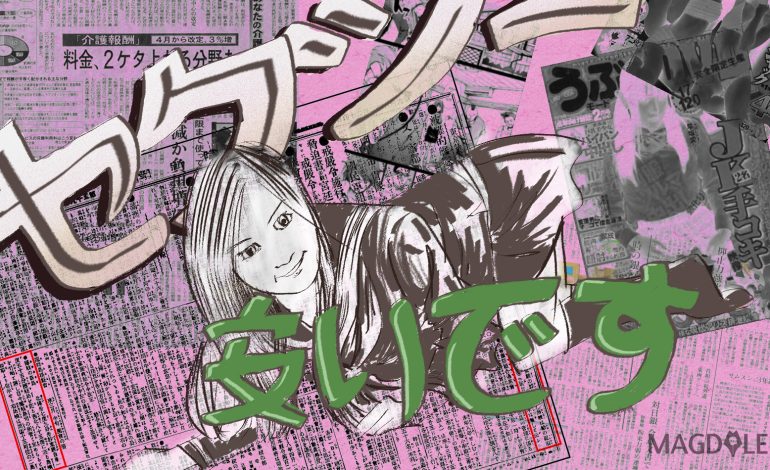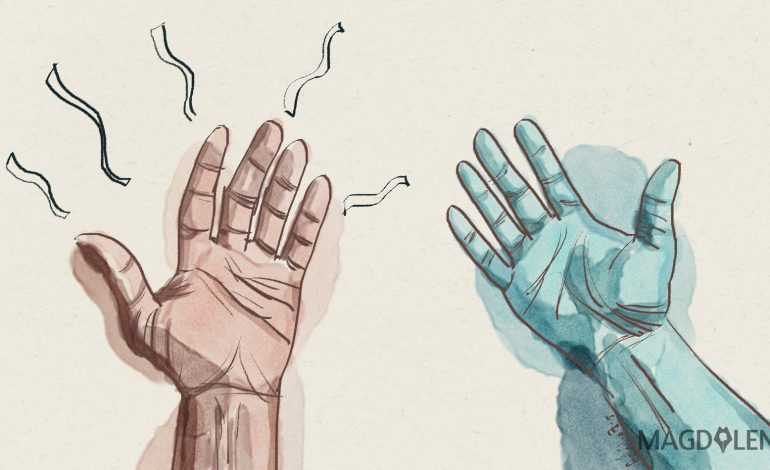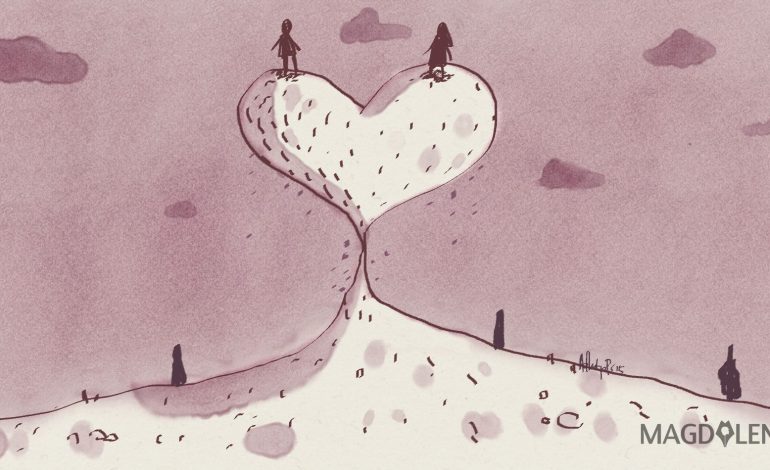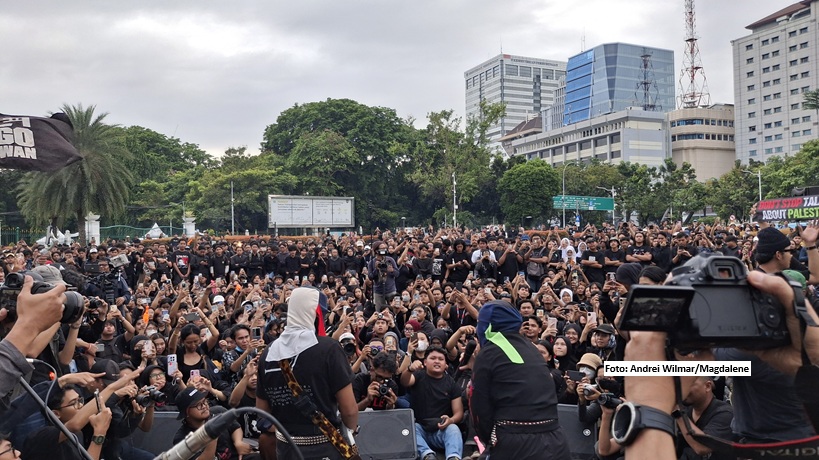Web Documentary Shows Sexual Exploitation of Japanese Girls

Recently I was upset with the decision of Shima City to feature this character as the Japanese town’s official mascot. Pearl divers, who are supposed to be represented by the mascot, condemned the government for demeaning their traditional and dangerous profession, and reducing them into what a local woman said “verges on child pornography”.
As if the depiction is not sexist enough, the official descriptions (from both the designing company and the city official) are worse – 17-year-old Megu Aoshima is “cute and fashionable” but is still “amateurish” and yet “hoping for a boyfriend”. While a Shima City official said the design might be changed, Megu Aoshima is already available for purchase in Indonesia as a Line emoji set.
And yes, the previous link shows why I was upset. Shima City will host the 2016 G7 Summit, and Line implies (erroneously) that Megu Aoshima is a G7 Summit’s mascot. More bizarrely, one of the reasons Shima City is chosen is Prime Minister Shinzo Abe’s reverence for the nearby Ise Grand Shrine, which is dedicated to the Sun Goddess Amaterasu. The goddess is the Mother to all Japanese Emperors. Talk about “Would your mother be happy to see that?”
One day I might understand how Japan (and India, and possibly other civilizations) could worship a goddess and yet treats real women badly. In the meantime, I am pondering about a previous pastime and muse, which now sounds not only sexist and creepy, but now also dangerous. I am talking about the fetish for Japanese schoolgirls.
Vice News produced an 18-minute documentary titled Schoolgirls for Sale in Japan, on the trade of schoolgirls in Akihabara, a part of Tokyo famous for video games, comics, and laptops. Now also selling schoolgirls.
For a long-term fan of anime and Japanese pop culture, it seems normal – girls in school uniforms giving out flyers and shouting out ads. But think about it for a second, forgetting all the anime references. Why on Earth are teenagers standing on the street until late night advertising cafes or bars? Even if they are older than 18, why do they have to dress up in school uniforms?
Their target customers, after all, are not fellow teenagers, but older men, ranging from college students to grandpas.
If you have 20 minutes to spare, you can watch the video below. If you cannot watch the whole thing (the reporter left a school girl café early as he felt disturbed), Rocket News 24 provides the summary.
As expected, many viewers (perhaps none of them is Japanese) feel that such documentary insults Japan and their otaku subculture. The usual defenses are something along the line of “It’s their culture”, “LOL it’s been around for decades. Why the fuzz now?”, or “13 is the age of consent in Japan” (not to mention the “Well, men are the real victims here”).
I have little patience for such people – people who adore Japanese girls and women but have little regard for their welfare. Perhaps they hate hearing “outsiders” criticizing their world. Or perhaps they think Japan gets it right – the high school girl business is harmless and fun. It is not harmless, since pimps keep a tight watch on the girls, and some of them have been raped.
Yes, I wanted a Japanese girlfriend. Yes, anime and Japanese video games were my entertainment of choice after hours decoding “Affirmative Action” and “Structuralism”. Yes, anime made my friends and students understand Structuralism better than I do. But I am offended by the way Japanese men harm the lives of these girls, from objectifying them to assaulting or coercing them for sex. I am also offended by the ready-made excuses given by non-Japanese to any criticism of Japan. Your love for Japan is not an excuse to ignore (or defend) things that are wrong with Japan.
In Indonesia it’s easy to find guys who are into Japanese porn stars and schoolgirl-themed girl bands like AKB48 or its Indonesian subsidiary, JKT48 (whose members have promoted various Japan-related products). I think it’s important for them (and you, female anime fans who happen to read Magdalene) to watch Schoolgirls for Sale in Japan.
And rather than thinking “It’s all normal, these white dudes are just being hysterical about things they only just learned,” ponder this: “Is it okay to keep treating girls like that? Don’t they deserve regular meal and rest? Don’t they deserve to feel safe?”
*Further read on the topic here. Thanks to Aulia A. Dhianti for tweeting about Vice News.
Mario breaks down the Japanese’ obsession with schoolgirls in this piece.






















